Index relies entirely on the support of donors and readers to do its work.
Help us keep amplifying censored voices today.
The artist Ai Weiwei’s outspoken views are gaining currency. Simon Kirby reflects on a change of mood in China as people lose faith in the Party
In June 2011, Ai Weiwei was released from detention to a form of home surveillance. He is confined to the city of Beijing and must inform the authorities of his movements. He may not make public statements nor comment on his detention and the terms of his release (a condition he has already breached); further investigations are pending and a prosecution may be pursued within a year. It is still far from clear what the implications are for Ai as a private individual, let alone for his capacity to continue to work as an artist. Just as he was never formally arrested neither has he been fully freed.
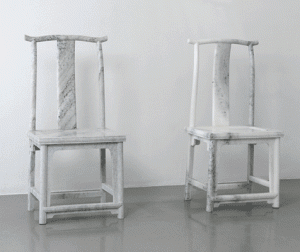 This shabby story takes place against a backdrop of heightened political sensitivity in China as the country braces itself for transition to a new, as yet unannounced, group of top leaders. This is scheduled to take place next year in the Great Hall of the People during the 18th National Congress of the Communist Party. The Congress will certainly be a rigid spectacle of national purpose and will make numbing television viewing. Not least because it will be impossible not to speculate on the nature of the Byzantine succession struggle which is currently taking place behind firmly locked doors.
This shabby story takes place against a backdrop of heightened political sensitivity in China as the country braces itself for transition to a new, as yet unannounced, group of top leaders. This is scheduled to take place next year in the Great Hall of the People during the 18th National Congress of the Communist Party. The Congress will certainly be a rigid spectacle of national purpose and will make numbing television viewing. Not least because it will be impossible not to speculate on the nature of the Byzantine succession struggle which is currently taking place behind firmly locked doors.
The detention of Ai Weiwei was based on intimidation rather than legal process — a pattern that is well established in China. In effect, he was kidnapped by the state and never informed which organ of the machinery was holding him, nor was he charged with a specific crime. Rather, his indictment was based on “confessions”. Even his release was justified on the spurious grounds of cooperative behaviour, willingness to make amends and poor physical health. As the threat of re-opening the case against him still looms, he is now being blackmailed into falling into line.
A few weeks after Ai Weiwei was released I had lunch with him. He talked frankly about the contradictions of his detention and the absurdity of his current position. He clearly intends to continue working and his remarkable personal charisma is undimmed. Yet he is, in my view, a person who is also deeply disturbed by what is happening to him.
Throughout the 90s, Chinese state-controlled capitalism ushered in a remarkable economic boom from which the fledgling contemporary art scene benefited. Artists, as potentially problematic figures, were heavily co-opted with a variety of sticks and carrots — there were rich rewards to be had and the freedom to continue making, exhibiting and travelling was granted to artists in exchange for creating non-critical work. In many cases, artists were understandably tempted to comply. Ever since the fearful events of the Tiananmen massacre on 4 June 1989, there has been an enforced accommodation between the government and society. I dubbed this the “Tiananmen contract” in an article for Index on Censorship that was published in 2008, ahead of the Chinese Olympics. The deal is that the Communist Party would steer the people towards individual prosperity and the country to greatness, through ensuring stability. In return, the primacy of the Party could never be questioned. Three years ago, the contract was widely supported — the level of basic freedom was greater than it had been in 20 years and living standards were rising. There was also pride at China’s leading role on the world stage. Today, I believe this consensus is much more fragile.
 The daily reality for Chinese citizens is that living costs are rising fast and incomes are not keeping up. Working conditions for white collar workers can be demoralising, while those for migrant manual workers, who continue to have even basic rights denied them, are often shockingly exploitative. Commuting in the new, high-rise cities can be exhausting and alienating. People are deeply sceptical about the capacity of the state to protect them from (often deliberately) contaminated food and a toxic living environment, criminal scams, corruption in the medical profession and corporate exploitation of consumers. The Party is widely understood to be at the centre of many of these scandals and is often seen to be protecting wrongdoers. Most flagrantly, the new super-rich live effectively beyond the reach of the law, while ordinary people can in no way count on basic social justice for themselves and their families.
The daily reality for Chinese citizens is that living costs are rising fast and incomes are not keeping up. Working conditions for white collar workers can be demoralising, while those for migrant manual workers, who continue to have even basic rights denied them, are often shockingly exploitative. Commuting in the new, high-rise cities can be exhausting and alienating. People are deeply sceptical about the capacity of the state to protect them from (often deliberately) contaminated food and a toxic living environment, criminal scams, corruption in the medical profession and corporate exploitation of consumers. The Party is widely understood to be at the centre of many of these scandals and is often seen to be protecting wrongdoers. Most flagrantly, the new super-rich live effectively beyond the reach of the law, while ordinary people can in no way count on basic social justice for themselves and their families.
There are attempts to address these problems through draconian anticorruption campaigns which make examples of officials accused of vice and graft. There are also strenuous efforts to reform social and fiscal legislation and to professionalise the legal system. This year’s 90th anniversary celebrations of the founding of the Chinese Communist Party saw an outpouring of congratulatory media stories featuring joyful ethnic minorities, good comrades and citizens and glorious historical deeds. Meanwhile Tiananmen Square, which is the heart of the great people’s revolution, was firmly sealed and off limits.
In March, I had dinner in a noisy Korean barbecue restaurant in Beijing with a favourite Chinese artist. Only 32 years old, he already enjoys a successful international career, is profoundly patriotic and the holder of an important teaching post. During the evening, my friend passionately expounded an opinion in full earshot of fellow diners and waiting staff that would have made me extremely uncomfortable even five years ago. Namely, that the Chinese Communist Party in 2011 is more fundamentally corrupt than even Chiang Kai-shek’s Kuomintang (KMT or Nationalist Party) of the 40s. The official history, tirelessly propagated in films and TV dramas, is that that the nationalist administration had degenerated into a kind of murderous gangsterism before the 1949 revolution. Yet my artist friend argued that pre-revolutionary society in many ways remained, for all its faults, a pluralistic one: an imperfect democracy. There was at least formal acknowledgment of the independence of the judiciary and channels to seek redress from injustice. The Communist Party of the 21st century, on the other hand, retains its monopoly on power through intimidation and force. It is deeply complicit in land grabs, forced evictions, endemic bribery and corruption. It even facilitates the enrichment of favoured businesses through official contracts and privileged access to resources and markets.
The legal system today, my friend told me, is explicitly in place in order to serve the interests of the Party above anything else. Citizens who attempt to petition the government to redress flagrant social wrongs can expect to be met at best with official obstruction. In many documented cases they will encounter thuggish intimidation and violence. This viewpoint is not unusual. In a way that is entirely characteristic of China, I then went on to hear the same, previously unimaginable, opinion expressed by three other, unrelated people within the course of as many weeks. If during the course of conversation with people in China, one digs just a little, it’s possible to encounter a profound and worrying cynicism in the integrity of the Chinese state.
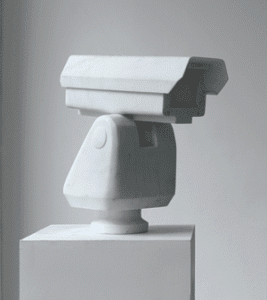 It seems that suddenly these views are being expressed loudly and in public. Ai Weiwei, on the other hand, has been consistently and persistently making his views known. His father, Ai Qing, was one of China’s most eminent poets, but was a political prisoner for 16 years in the western desert region of Xinjiang. This is where Ai Weiwei spent his entire childhood and early adolescence. When Ai Weiwei returned to China in 1993 after ten years in the United States, his rehabilitated father advised him on his responsibility as a Chinese citizen to speak out, reportedly saying, “You are at home here, there’s no need to be polite.”
It seems that suddenly these views are being expressed loudly and in public. Ai Weiwei, on the other hand, has been consistently and persistently making his views known. His father, Ai Qing, was one of China’s most eminent poets, but was a political prisoner for 16 years in the western desert region of Xinjiang. This is where Ai Weiwei spent his entire childhood and early adolescence. When Ai Weiwei returned to China in 1993 after ten years in the United States, his rehabilitated father advised him on his responsibility as a Chinese citizen to speak out, reportedly saying, “You are at home here, there’s no need to be polite.”
An intriguingly enigmatic artist, Ai Weiwei’s public personality is also complex and elusive. The true Ai Weiwei may well be a nuanced combination of the many faults of which his detractors accuse him. However, it has also now become clear, even to his harshest critics, that this artist has courageously maintained a highly principled position for which he is now paying a heavy price. It is my observation that many others are beginning to come round to his point of view.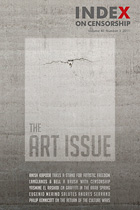
This article appears in the “Art Issue” of Index on Censorship. Click on here for subscription options and more.
Simon Kirby is the director of Chambers Fine Art in Beijing
Anish Kapoor takes a stand for artistic freedom in ‘The Art Issue’, a special full-colour edition reporting on censorship in the contemporary art world. Subscribe to read an exclusive interview with the acclaimed sculptor and more.
Read about the return of the culture wars with contributions from star commentators, critics and artists. Celebrated Spanish artist Eugenio Merino salutes Andres Serrano’s controversial ‘Piss Christ’ and Turner Prize nominees Langlands & Bell write about their own brush with censorship.
Plus: Voina, Russia’s most provocative performance artists, and Yasmine El Rashidi discusses the role of graffiti in the Arab Spring.
 In post-revolution Egypt, street art has become one of the symbols of ongoing resistance. Yasmine El Rashidi reports on the graffiti artists of Cairo (more…)
In post-revolution Egypt, street art has become one of the symbols of ongoing resistance. Yasmine El Rashidi reports on the graffiti artists of Cairo (more…)
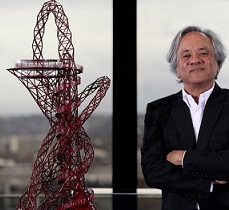 Earlier this year, the arrest and detention of Ai Weiwei, China’s most famous artist and Index contributor, caused an international outcry. In an exclusive interview with Index, celebrated sculptor Anish Kapoor explains why artists have a duty to take a stand for freedom of expression
Earlier this year, the arrest and detention of Ai Weiwei, China’s most famous artist and Index contributor, caused an international outcry. In an exclusive interview with Index, celebrated sculptor Anish Kapoor explains why artists have a duty to take a stand for freedom of expression
Index: When you made the decision to withdraw from the show in Beijing and to make a stand for Ai Weiwei, had you ever made that kind of political gesture before?
Anish Kapoor: When Ai Weiwei was arrested, I was doing this work in Paris at the Grand Palais [‘Leviathan’, pictured below]. I thought about it long and hard –– should I, shouldn’t I dedicate the work to Ai Weiwei? What does it mean? One has to be very clear that in doing such a thing you never do it without a degree of self-interest. I needed to understand what my self-interest was and what I was trying to do. Was this about Ai Weiwei or was it about me? And I decided in the end that as one of the big shows in Europe during the summer, I could dedicate it to Ai Weiwei and that it wasn’t about me. I discovered in doing it that actually I have a voice that I probably didn’t know I had before and I think that’s very important. And then I felt that since I’d already taken a stand, the show that the British Council was planning [“UK Now” in China next year] required a further stand. I think it’s essential that while there are still a hundred and more people locked up in Chinese jails — I’m talking about intellectuals, I’m not for the moment talking about ordinary people who go on the internet — I think it’s the duty of all artists to stand up and say we won’t take part. I’ve called out to artists all over — don’t take part, don’t show in China. A few have started to respond. I see that Daniel Buren, the great French conceptual artist, has pulled a show in China, and there are others. I’m glad to see it. It means something.
Index: You also proposed that galleries close for a day across the world and said it would be good for the art world to come together more.
Anish Kapoor: It’s perhaps naïve of me, but I think it’s important that we stand together for colleagues. It’s very hard for galleries to close for a day, but rather than a negative action, I feel in the end we were about to make a positive action on the anniversary of the 100 days of Ai Weiwei’s incarceration, but thankfully he was released. The positive action was to try and get thousands of galleries all over the world to show a work of Ai Weiwei’s.
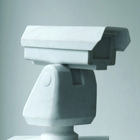
Artists under threat
Index: China is an extreme case in the degree to which it controls, and attempts to control, freedom of expression. Would you like to see the art world being more politically engaged and showing more solidarity? There’s a very long tradition of writers coming together, but not in the art world.
Anish Kapoor: The art world is extremely fragmented. It is a place that’s also infiltrated by money and other instruments of influence. And it never finds itself in a place where it can shout. I think we need to learn how to do that and find a way to have singular voices. Through the whole period of Soviet repression of artists, which was severe, the art world didn’t say a thing. The avant-garde has held itself away from human rights. It’s been a great struggle for artists of non-European origin. It’s been a great struggle for women artists, quite contrary to the sense that the aesthetic world is an open forum –– it isn’t. It’s extremely doctrinaire and extremely partisan. And I think those battles are still being fought. So it’s not surprising at one level anyway.
I can only explain it by [the fact that] these old instruments of power in the art world are generally male and white, and within a certain aesthetic tradition. All of that has begun to fall apart in the last decade or so. We still haven’t got to the point where, if you like, lone, outsider voices can be properly heard. Ai Weiwei is a celebrity, so it’s relatively easy [for him to be heard] –– much harder in many other cases.
Index: Artists are more subject to arbitrary censorship wherever they are –– whether in the free world or more repressive world.
Anish Kapoor: I think it’s also because contemporary visual culture isn’t uni-directional. 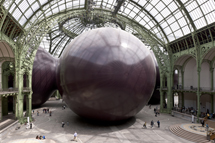 When you write a piece, you have to articulate a precise point in words – political or otherwise. An art work can be nebulous in relation to the politics of its situation. It can indicate a discomfort without actually articulating it and therefore it’s much harder to pin down. It’s much harder to say: ‘This is subversive.’ It’s hard to define what subversive is –– especially in contemporary language and contemporary visual culture. Ai Weiwei, in that sense, is somewhat more articulated towards a series of events — noting down the number of people killed by corruption and maladministration, or collecting and making monuments with marbled doors of all the houses that have been knocked down and land that’s been taken away from the so-called squatters. It’s still nebulous though. If you look at the work it’s just a bunch of marbled doors. It doesn’t obviously say what we infer from it. Though we know what to infer of course.
When you write a piece, you have to articulate a precise point in words – political or otherwise. An art work can be nebulous in relation to the politics of its situation. It can indicate a discomfort without actually articulating it and therefore it’s much harder to pin down. It’s much harder to say: ‘This is subversive.’ It’s hard to define what subversive is –– especially in contemporary language and contemporary visual culture. Ai Weiwei, in that sense, is somewhat more articulated towards a series of events — noting down the number of people killed by corruption and maladministration, or collecting and making monuments with marbled doors of all the houses that have been knocked down and land that’s been taken away from the so-called squatters. It’s still nebulous though. If you look at the work it’s just a bunch of marbled doors. It doesn’t obviously say what we infer from it. Though we know what to infer of course.
Index: I’m also thinking of artists in the West. There’s a famous case of the Smithsonian last year bowing to conservative pressure. There’s galleries in London that have problems when they show the work of Sally Mann for example.
Anish Kapoor: I think we have a very carefully defined sense of what’s acceptable, especially if it goes near children or pornography — all those much more difficult areas. Censorship is there and some of it is okay, I assume. But how we monitor it is important.
Index: When you say it’s ok …
Anish Kapoor: I can see that there’s a reason to monitor pornography and paedophilia, especially unacceptable things, and we have to understand that anything that encourages them has to be watched carefully. I understand that impulse but we go there, even there, with great care.
Index: Artists are by the very nature of their work going to be more vulnerable to pressures of conservatism or conformism.
Anish Kapoor: Of course. There’s a kind of naughty boy or naughty girl way of doing it which a lot of artists have taken — why not? I’m not that kind of artist at all. I feel that agitprop as a method is problematic — for me — in terms of my poetic understanding of what a work can be.
When it comes to governments, economic interests override human rights
Index: I wanted to ask you about the British Council’s response to the dilemma of artists displaying work in countries that have a poor human rights record. Chief executive Martin Davidson has said: “It is through cultural exchange that we best demonstrate the benefits of free artistic expression and build supportive links between people in the UK and China.”
Anish Kapoor: I say phooey to that I’m afraid. I did suggest to them [that they] ought to make the central piece in the [UK Now] show a kind of dedication to Ai Weiwei — or to one of the other artists. If they’re going to do this show then they ought to have [Chinese] artists properly take part. The governmental view over the past 30 years has been we’ll speak quietly in public and loudly in private. Well, 30 years of doing that hasn’t done a damn thing. We had the premier of China here [in London] and Cameron was silent on the subject. [Was that] just because Ai was released? No, that was carefully timed. And I think silence says that there are economic interests that override human rights interests. It’s disgraceful.
Index on Censorship: China’s one of the most flagrant examples [of human rights abuse], Iran would be another. Would you start applying the same [tactics] to other countries?
Anish Kapoor: One has to. In the end one has to. Iranian culture, like Chinese culture, is extraordinary. One has to take a moral stand in a way with colleagues for solidarity. I think it’s important to understand in this also that governments are ineffective. I think that’s maybe the most important point of all. Individuals have to do it all. So therefore it’s our duty as individuals to stand up and say we won’t take part or protest. The Chinese don’t listen to anyone while there are government protests — I have absolutely no doubt whatsoever that it’s individuals making a noise all over the world that made them release Ai Weiwei. I’ve no doubt about it. Governments are just ineffective at this. And we have the power. We must do something.
This article appears in The art issue (Autumn 2011) of Index on Censorship magazine. Click on
The Art Issue for subscription options and more